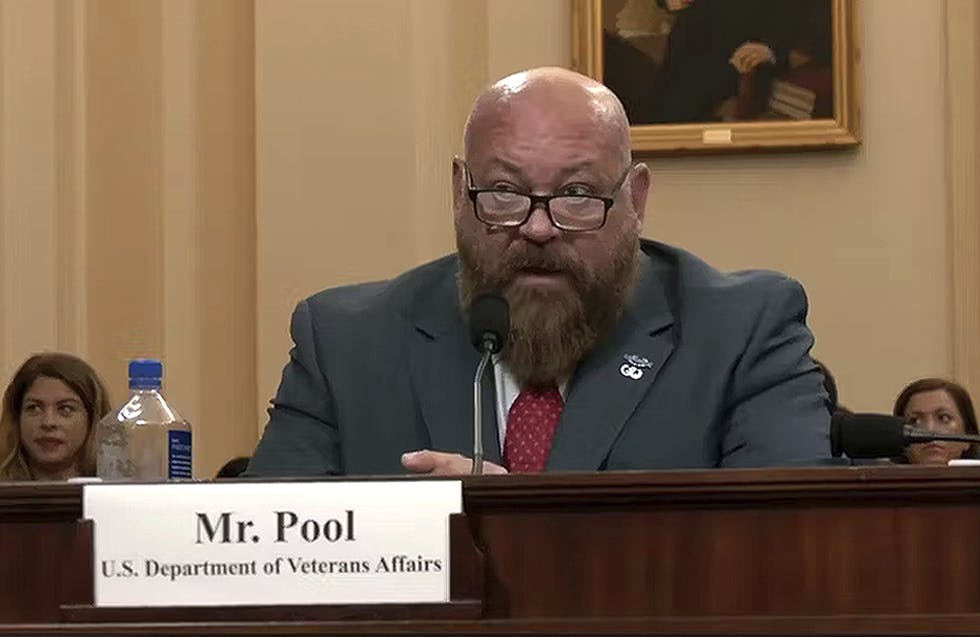NIH Commits to Diversity in Small Business, Academic Engagement
The agency’s SEED and extramural research offices are pushing for more equity and diversity in partnerships.

Leaders from the National Institutes of Health are emphasizing the need for diversity in partnerships with the small businesses the institutes work with.
Working with small businesses is one of the agency’s focus through its Small Business Education and Entrepreneurial Development (SEED) office, an accelerator group that looks to bring academic and industry research insights to medical products at speed.
SEED consists of three teams supporting small businesses, innovators and academics. One of the small business program goals of SEED is to increase participation of women-owned and socially and economically disadvantaged small businesses in NIH Small Business Innovation Research (SBIR) and Small Business Technology Transfer Programs (STTR).
One subset of this office’s goals is to encourage diversity across those small business partnerships. It is going so via the NIH UNITE initiative, which aims to identify and address structural racism within the scientific community.
“Anyone who studies or even reads about the shocking health care disparities in this country really understands that we need a broad spectrum of personal backgrounds and experiences, in addition to the educational and professional experiences people have, to go after the challenges that affect communities in all parts of the country,” said SEED Director Matt McMahon at the Health and Human Services Small Business Program Conference last week. “If we want to help address the health care challenges in the Native American community of the impact of the opioid epidemic in rural communities or persistent challenges like heart disease, COPD, obesity — we’re really going to need to recruit a diverse cadre of personal viewpoints and perspectives and backgrounds to go after those issues.”
A working group within UNITE is working on a framework that would help groups like SEED diversify its partnerships with NIH. This framework has four components, which are to:
- Strengthen the workforce, as well as the infrastructural and institutional capacity at historically black colleges and universities (HBCUs) and minority-serving institutions (MSIs)
- Identify evidence-based interventions to address cultures of discrimination and inequity across extramural institutions
- Reform inequities in NIH processes and policies, including peer review interactions of NIH staff with applicants from underrepresented groups and expanding opportunities for individuals from underrepresented backgrounds across NIH funding mechanisms
- Improve career pathways for underrepresented groups by improving existing programs to identify gaps and successful metrics that can be scaled up.
“We have been engaging in a deep dive in existing NIH programs to develop or to better understand knowledge gaps, as well as opportunities and best practices,” said NIH Division of Loan Repayment Director and Division of Biomedical Research Workforce Acting Director Ericka Boone, who co-chairs one of the committees under UNITE. “We’re also beginning to identify and develop a running list of recommendations for programmatic efforts, including development of capacity-building and career development programs, and also those that are focused on small business SBIR/STTR-relevant ideas.”
Some recommendations that Boone’s group is considering based on the framework include:
- Expanding outreach, communications, technical assistance and funding opportunities for HBCUs and MSIs
- Assessing interactions between NIH staff and the extramural community to identify barriers and bias to inform new programs and enhance equity in NIH processes
- Providing support for academic institutions to conduct in-depth self-studies or climate assessments and enact action plans to enhance opportunities to participate in federal grants and awards processes
- Strengthening NIH’s centralized education, outreach and evaluation efforts for existing training and diversity programs and offer greater opportunities for participation in the product development ecosystem.
As UNITE works on these recommendations, SEED Academic Innovation Team Lead Ashim Subedee said partnering with HBCUs and MSIs with a group of academia-industry partnership experts is a great path forward to encourage innovation in health research. Be Cool Pharmaceuticals CEO and academic Kelly Drew, for instance, argued that innovation comes from academia, and small businesses could help move academic thought leadership to the market.
“The innovation comes from the academic side because that’s what we are paid to do really, and we don’t have the pressure of trying to make something useful,” Drew said. “Initially, we’re just trying to figure out how things work, but once we have that innovation, we really need the business side to understand how to move it forward.”
Partnerships with academic institutions like HBCUs and MSIs could also expose students to the marketplace, allowing them to get critical experience they need to jumpstart their careers down the road, said Bitwise Industries Senior Vice President of New Economies Johnathan Holifield. He agreed with Drew, adding that these students can advance diverse leadership and innovation in the marketplace.
“Minority-serving institutions [and] HBCUs are actually a strategic advantage for their local community, for their people, for their institutions and, of course, for their small businesses,” he said. “They are conduits to open up all kinds of new opportunities for businesses, as well as their surrounding communities.”
This is a carousel with manually rotating slides. Use Next and Previous buttons to navigate or jump to a slide with the slide dots
-

VA CIO Targets Modern IT and Smarter Workforce Alignment
Agency leaders told lawmakers they are focused on trimming legacy systems and restructuring its workforce to streamline operations.
3m read -

VHA’s AI Chief Led NIH’s New AI RFI
The agency's AI chief Gil Alterovitz helped develop a plan that hints at how NIH is charting the future of AI and biomedical research.
5m read -

Trump Taps Maj. Gen. John Bartrum to Lead VHA
Nominated for VA's top health role, Bartrum brings over four decades of military and public service to the agency.
3m read -

VA Secretary Tells Congress Tech Efficiencies Will Help Offset Workforce Reductions
Technology improvements will help allow department to maintain veteran care, VA leadership tells Senate Veterans Affairs Committee.
-

Data Modernization for Federal Health Enterprise
Technology and modernized data systems are opening up new frontiers for health care clinicians, agencies and patients.
37m watch -

Bird Flu Highlights Modernization Opportunities in Public Health Data
Experts are expanding data sharing and leveraging GIS technology to improve bird flu tracking, prediction and response.
5m read -

HIMSS: AI's Role in Health Care Innovation, EHR Compliance
Federal agencies and industry partners are increasingly exploring AI use to improve health care.
13m watch -

HIMSS: HL7 Standards Boost Health Data Interoperability
For over 30 years, Health Level Seven International (HL7) has set the standard for electronic health information worldwide.
13m watch -

HIMSS: DHMS' Enterprise Approach to Health Care Interoperability, Innovation
The agency’s enterprise data program is modernizing data sharing within EHRs for the military.
16m watch -

HIMSS: AI Revolutionizes Federal Health Services
NTT Data’s Noel Hara shares insights on AI, efficiency and innovation in IT strategy and healthcare outcomes.
8m watch -

HIMSS: Bolstering AI, Interoperability to Transform Veteran Health Care
At HIMSS, Dr. Shane McNamee and Dr. Johnathan Nebeker discuss how they’re improving data to unlock AI’s full potential.
16m watch -

APIs Are Supporting Community Care Interoperability at VA
The agency is seeing success with initiatives like its Veterans Interoperability Pledge and USCDI standards in supporting veteran health care.
7m read
















